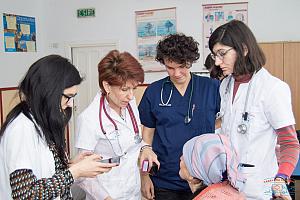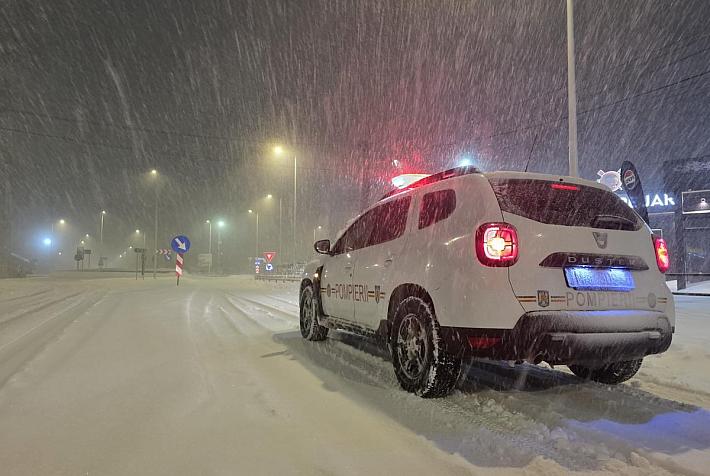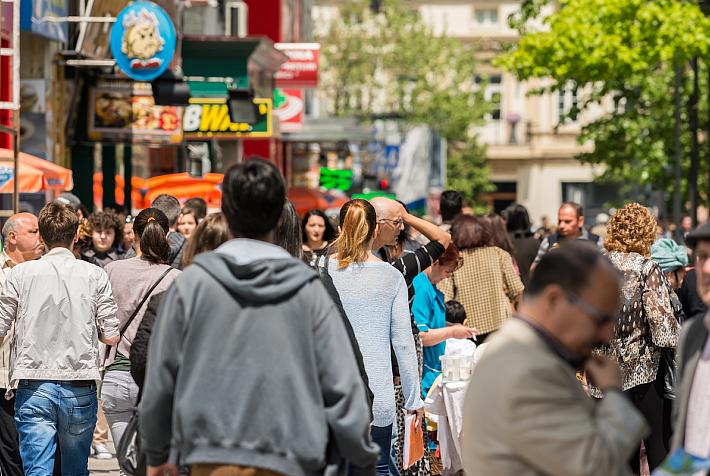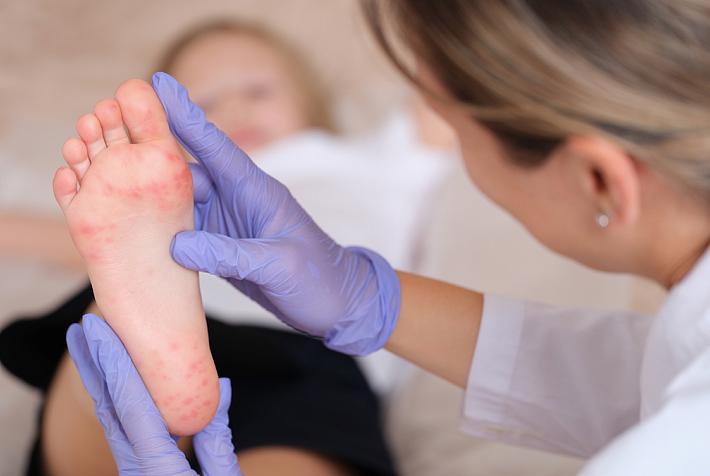Survey shows share of unvaccinated Romanians who could change their mind about getting Covid-19 jab
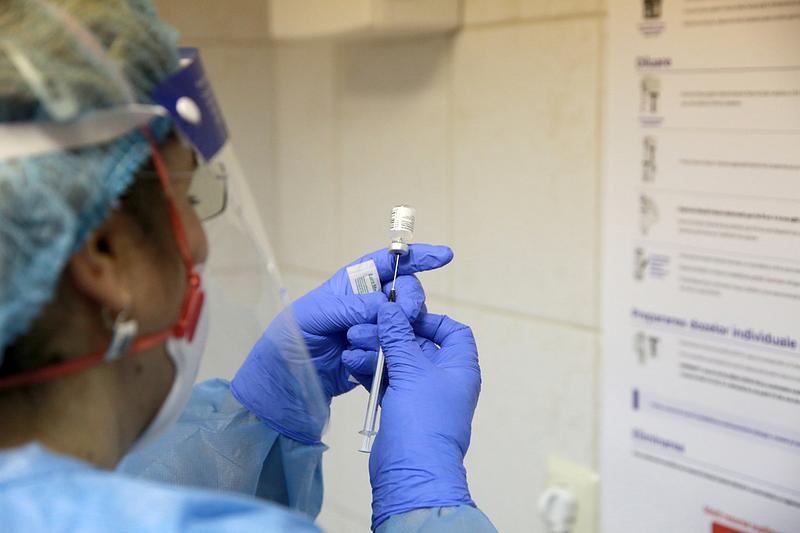
A total of 36.9% of the unvaccinated population would agree to get the Covid-19 jab, a survey carried out in October by INSCOP Research at the request of the think tank Strategic Thinking Group showed.
The survey had 2,830 respondents. It looked at the vaccination intent of the unvaccinated population, why they hesitate to get the Covid-19 vaccine, and tested messages encouraging vaccination starting from a questionnaire developed using the Health Belief Model.
The survey was occasioned by the launch of the vaccination caravan #OAMENICAMINE, dedicated to public health education in the context of the pandemic. The caravan is organized and supported by the private sector.
A total of 47.9% of the respondents said they received the Covid-19 vaccine (9.2% one dose and 38.7% both doses), 51.9% said they did not get vaccinated, and 0.2% did not answer.
Of those unvaccinated, 36.9% said they would agree to get the vaccine, while 60.3% are against this, and 2.7% do not know or do not answer.
Asked about their sources of information, 50.2% of the unvaccinated and 53.7% of the vaccinated mentioned the television stations; 24.4% of the unvaccinated and 14.2% of the vaccinated pointed to social networks; and 15.8% of the unvaccinated and 22.2% of the vaccinated to newspapers, magazines, and online publications. Radio stations were indicated by 4.9% of the unvaccinated and 6.1% of the vaccinated, while 4.7% of the unvaccinated and 3.7% of the vaccinated had other sources.
Questioned about the trusted population categories who speak about Covid-19 and vaccination, 83% of the vaccinated pointed to doctors, 77.5% to those who got vaccinated, 71.7% to those who had the illness, 54.1% to teachers/ educators, 32.4% to journalists, 31.8% to priests, 22.4% to business persons, and 7.5% to politicians.
Among the unvaccinated, 52.5% trusted those who had the illness, 49% the doctors, 35.9% the priests, 35.7% those who got vaccinated, 33.8% teachers/ educators, 18.3% journalists, 12.7% business persons, and 3.2% politicians.
Furthermore, 47% of the unvaccinated said they fully agreed with the statement “I am worried about the number of Covid-19 deaths growing uncontrollably”, and 18.5% said they agreed somewhat. On the other hand, 7.3% were somewhat against the statement, and 24.9% entirely against it.
Of the unvaccinated respondents, 36.2% completely agreed with the statement “The fourth wave of the pandemic is much more aggressive than previous ones,” 22.6% somewhat agreed, 9.8% somewhat disagreed, and 26.3% completely disagreed.
Asked to what extent they agree with the statement “I’m worried I might get ill with Covid-19 in the coming period,” 28.5% of the unvaccinated agreed, 23.3% somewhat agreed, 10.1% were somewhat against, and 37.2% completely against it.
Around two thirds (67.7%) of the unvaccinated respondents admitted that Covid-19 could lead to death. A total of 42.2% of them said they completely agreed with the statement “Covid-19 can be fatal,” and 25.5% somewhat agreed, while 21.8% fully disagreed. Another 34% of the unvaccinated completely agreed with the statement “The new forms of coronavirus are more dangerous and aggressive,” 24.6% somewhat agreed, while 23.4% completely disagreed.
More than half of the unvaccinated (57.3%) do not deny the existence of the virus, while 40% think it is all propaganda. A total of 25% completely agreed with the statement “The virus does not exist, it is all propaganda,” 15% somewhat agreed, and 44.3% completely disagreed.
Close to 80% of the unvaccinated think they do not yet have enough information and do not understand what the vaccine contains. A total of 62.4% agreed with the statement “I do not yet have enough information and I do not understand what the vaccine contains,” 16.8% partially agreed, and 15.3% fully disagreed.
Another 37.3% of the unvaccinated said they did not like needles and would prefer a pill or a nasal spray treatment.
Asked if they agreed with the statement “I want to learn more medical data about the vaccine,” 67.1% of the unvaccinated agreed, 12.8% somewhat agreed, while 16.6% fully disagreed.
A share of 49.6% of the unvaccinated completely agreed with the statement “I will get vaccinated when I have more information on the vaccine,” while 23.7% completely disagreed.
In reference to the statement “If I could get tested for free against Covid-19 at the supermarket, I would do this,” 56.8% of the unvaccinated completely agreed, while 26.2% completely disagreed.
At the same time, 49% of the unvaccinated completely agreed with the statement “I would get vaccinated if I saw more doctors detailing the effects of the vaccine,” while 25.5% completely disagreed with it.
Regarding the statement “If I were sure my effort helps doctors in hospitals and ICUs, I would also get vaccinated,” 42.5% of the unvaccinated completely agreed, while 29% fully disagreed.
“According to the data, between 30% and 40% of the unvaccinated population could be persuaded to get vaccinated, with reasonable efforts. With the help of additional actions – administrative, logistic, and communication – other, more skeptical categories in the unvaccinated population could be persuaded to get vaccinated. Except for a radical, anti-vaccine segment of approximately 20-25% of the unvaccinated population, the remaining three quarters of the Romanians who did not get vaccinated do not have a dogmatic, hostile attitude towards vaccination. Their wary attitude is connected to a personal evaluation, either objective or influenced by disinformation, of the risks to health or is due to the impression that they do not have sufficient credible information on the vaccine. The perception of the vulnerability to Covid-19 is still at a high level, and it is stronger when it comes to evaluating the risk to self compared to the impact of the pandemic on society,” Remus Ștefureac, director INSCOP Research, explained.
The survey was carried out between October 17 and October 25 using the CATI (phone interviews) method among 2,830 respondents 18 or older, representative of Romania’s population. The error margin is of ± 1.84%. To analyze the perception of the unvaccinated population, 900 people who said they didn’t get vaccinated were surveyed. The error margin for the data from this sub-group is of ± 3.27 %.
The survey is available here.
(Photo: Gabriel Petrescu/ Dreamstime)
simona@romania-insider.com







